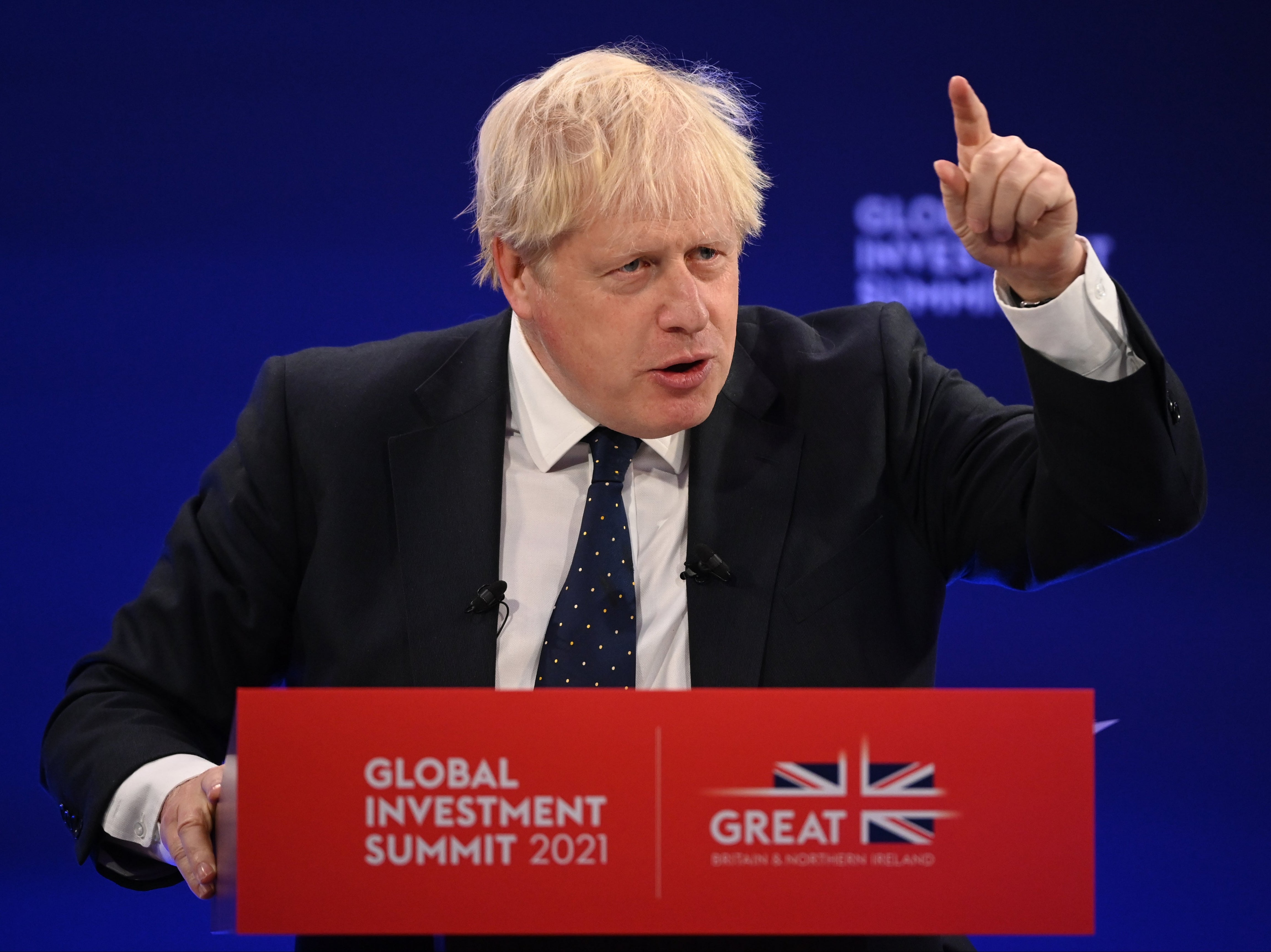The business world has already written off Boris Johnson
It is not that they particularly dislike him or want him replaced – but worse than that, writes Hamish McRae


Business has written off Boris. It is not that it particularly dislikes him or wants him to be replaced, though many in the business and financial communities for various reasons do. It is worse than that. People don’t care any more whether he survives or not.
If that sounds harsh, consider this. The FTSE100 share index barely moved, actually opening up a few points on the Monday close. Sterling fell a tiny bit in the morning but came back up and was trading within a few cents of the rate against the dollar the night before. So nothing much there. The big issues of the day were what is happening to the Japanese yen (very weak), what will the European Central Bank signal about interest rates at its meeting this week, and the World Bank cutting its growth forecasts and warning of stagflation.
The interesting question surely is not how long Boris Johnson survives, but why from an economic perspective people don’t seem to care. That is not to make any judgement about his future. I was chatting with the former head of one of our largest banks the other day, who was not a fan but reckoned he would still win the next election with a majority of 20. It is a demonstration that the business world has moved on. I can think of five reasons why this should be so.
First, fiscal and economic policy looks reasonably secure. We are gradually getting the deficit back under control. While Rishi Sunak is less of the golden boy now than he was a couple of years ago, what the chancellor has done is deemed a reasonable success. There are of course the issues of the increased national insurance contributions and the windfall tax on energy companies, but these have been accepted.
Were he to be replaced that would unnerve both the markets and business more widely, but for the moment he seems safe. Kwasi Kwarteng, the business secretary, is also impressing many of the people he meets, and his straightforward approach to the difficulties with the EU over Northern Ireland plays well with the companies struggling to keep open the trade across the Irish Sea.
Second, the Bank of England is taking most of the flak over inflation. Monetary policy does remain independent of government, so whatever view you take of the Bank’s performance, the government can say “not our fault”. Actually, what has happened is a combination of the global collective failure of central bankers, and two one-off blows – the pandemic and war in Ukraine. That is not to say that governments are powerless, for it is their duty to protect the most vulnerable. But whether Boris is in post or not has zero impact on inflation. That is the issue that most worries the business community, so in that sense, whether he goes or stays does not matter.
Third, what happens to the UK economy over the next couple of years will largely be determined by events that happen abroad. Top of that list is whether the US goes into recession. Next is what happens to demand in China, which right now is very important to commodity prices. Obviously the outcome of the war in Ukraine will have economic consequences as well as geopolitical ones.
To keep up to speed with all the latest opinions and comment sign up to our free weekly Voices Dispatches newsletter by clicking here
Next, there is disruption. You don’t have to try to fly to Europe (or get stuck there trying to get back) to realise that running any business at a time of searing change is very difficult. The shenanigans in Westminster seem almost absurdly self-indulgent for a business executive trying to hire and train new staff, get supplies of components held up in Shanghai, or finding the company’s fuel bill has doubled.
Finally, there is an awareness that another leader, or indeed a general election and another government, would not make much difference. To some extent, the business and financial communities lean right and would, by and large, prefer a Conservative government, just as the academic community and trade union members lean left and would prefer a Labour one.
But the tribal loyalties are much weaker now than a generation ago, and business deals with the government it has got. What it wants most is stability, and there is not much sign of that in the next two years, whoever happens to be living in No 10.
Hamish McRae’s new book, ‘The World in 2050: How to Think About the Future’, has just been published by Bloomsbury
Join our commenting forum
Join thought-provoking conversations, follow other Independent readers and see their replies
Comments
Bookmark popover
Removed from bookmarks